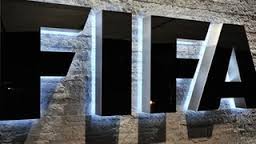By Andrew Warshaw
February 9 – FIFA president Sepp Blatter’s chief legal adviser faces allegations of watering down a key report into reform recommendations in order to spare Blatter from potentially damaging criticism.
In 2011 Blatter commissioned Swiss professor Mark Pieth to head an independent body to come up with firm proposals for enhanced governance in order to repair FIFA’s tarnished image.
Several of Pieth’s proposals, published last April, have been adopted but some weren’t and German magazine Der Spiegel now claims that his final report – part of which pointed the finger squarely at UEFA rather than FIFA – was questioned by FIFA’s director of legal affairs Marco Villiger.
The claims come right at the start of the four-month FIFA presidential race and UEFA president Michel Platini was quick to take the opportunity to step up Europe’s opposition to Blatter with a hard-hitting rebuke.
“The latest revelations regarding the Pieth report show that FIFA’s Independent Governance Committee was anything but independent,” said a spokesman for Platini. “UEFA has always wondered why it was criticised by Mr Pieth and wrongly accused of blocking FIFA reforms. Now we understand why and where it all came from.”
It was on Villiger’s advice that FIFA’s executive committee initially ruled not to publish Michael Garcia’s report into possible corruption surrounding the 2018 and 2022 World Cup bid process. That has since given way to a change of heart and a decision to release a redacted version later this year in order to protect witnesses interviewed during the probe.
Now Villiger is at the centre of another storm amid claims he pressed for deletion of passages from Pieth’s final report.
According to emails in possession of Der Spiegel, Villiger saw a 15-page draft two months beforehand and suggested changes to remove references to the FIFA president and the infamous ISL bribery affair.
FIFA’s long-term marketing partner went bankrupt in 2001 with debts of around SFr142 million. It later emerged that the then FIFA president Joao Havelange and his one-time son in law, Ricardo Teixeira, had been found by Swiss justice authorities to have received millions of dollars in bribes in connection with the award of World Cup marketing rights.
One paragraph in Pieth’s report allegedly said the following: “It must be asked whether, during the years before ISL collapsed, president Blatter knew or should have known that ISL had made payments (bribes) to FIFA officials.”
Villiger apparently responded thus: “All references to the ISL case are unnecessary. We do not understand what can be gained from referring to the ISL case in the report, especially on such an epic scale.”
Also according to Der Spiegel, where Pieth referred to “scandals” afflicting FIFA, Villiger substituted “previous cases”.
Der Spiegel gave FIFA the right of reply and quoted the organisation as saying there had been no question of exerting any “unfair influence” and that Villiger was one of a number of key officials who had examined the draft.
FIFA also pointed out it was “standard procedure in tasks of this nature for auditors and advisers to first submit their reports to their clients in order for facts and any comments to be examined”. The issue is also that Pieth was commissioned to come up with reform recommendations and not commissioned to re-open an investigation that had already been ruled on by Swiss authorities.
But the revelations are nevertheless troublesome for Blatter as he begins his lobbying campaign for a fifth term since they appear to throw into question how independent the reform programme actually was.
The claims seem likely to be used against him by those supporting his three UEFA-backed opponents in the election process: Dutch FA president Michael van Praag, former world player of the year Luís Figo and outgoing FIFA vice-president Prince Ali bin al-Hussein of Jordan.
Contact the writer of this story at moc.l1744970878labto1744970878ofdlr1744970878owedi1744970878sni@w1744970878ahsra1744970878w.wer1744970878dna1744970878

